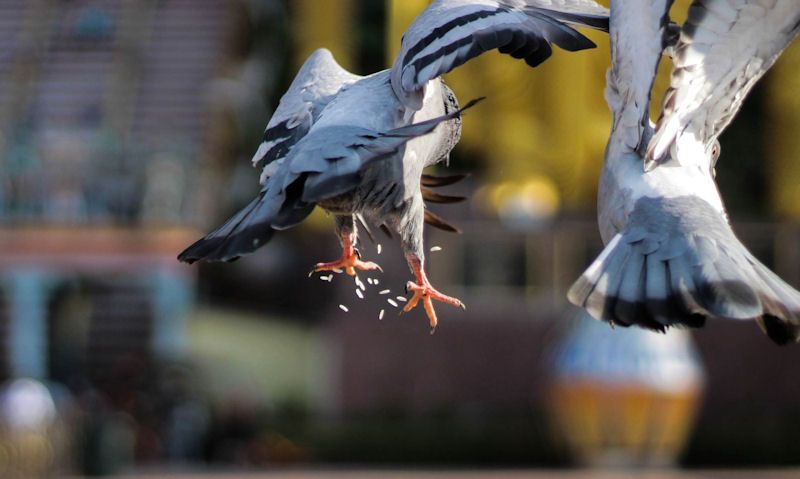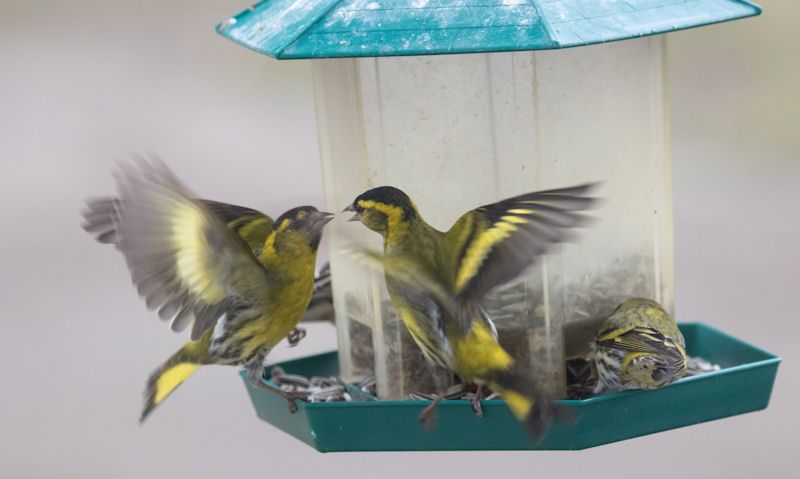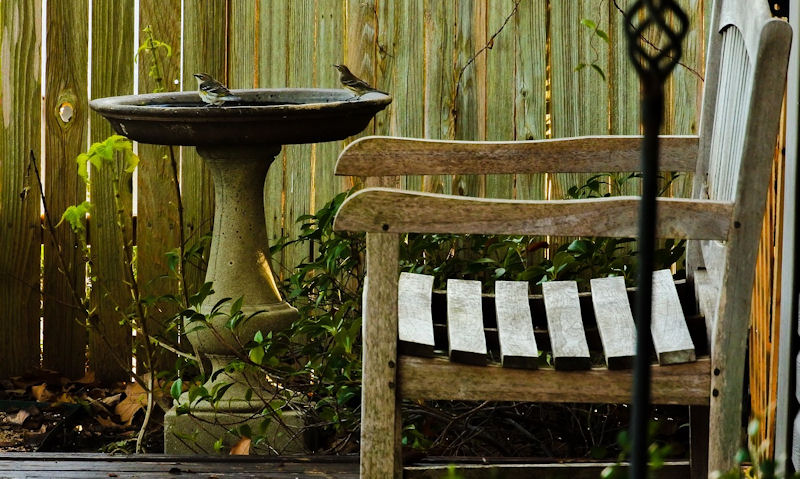Can birds eat rice
You can serve wild birds visiting your garden a whole range of common cooking rice, with white or brown rice the preferred option.
Cook up softly boiled rice for wild birds in your garden, it has small health benefits in protein with fibre, and is a suitable source of bird food to leave out. If only to keep the pigeons away serve them uncooked rice only, well the small garden birds will only eat the cooked rice that is not to firm or hard.
Only serve the rice out in the garden once its cooled down to room temperature, with rice out chilled in the fridge needing to be left out for 30 minutes or so.
When cooking never add salt or sprinkle over any once on the plate to cool. We do recommend you cool the rice down quickly by running it under a cold tap or leave to soak in a pan of cold water.
This will reduce the rice clunking together in big chunks allowing the birds to feed on individual grains of rice.
If you have hanging bird feeders don't be tempted to fill up one with rice, it won't work as the rice will become trapped, unlike nuts or seeds that flow freely in the tube.
If you have a roofed bird table then this would be a better site to feed rice to birds.
Otherwise a hanging or ground mesh open tray with gaps that don't allow rice to full through would be the best option to serve out in the garden.
If any of these options are not possible, no problem; simply leave the rice out on a high wall or leave on the shed roof - providing there's no cats around.
Well pigeons, doves or seagulls are fans of uncooked rice, common small garden birds would probably leave it altogether, preferring cooked rice only.
Unsalted, boiled rice only
Once you've picked out your basic bag or box of 'boil in the bag' rice you only need to boil it for no longer than 10 minutes on a medium heat on the hob.
Don't cook it to your liking if its fairly firm boiled rice you prefer, make an exception for the delicate small garden birds by cooking the rice until soft.
This will make the rice suitable for a wider range of bird species as they would be able to eat and digest it far easier than hard, firm rice.
Filling up the pan with hot kettle water will save time, well throwing in the rice only when it comes to a boil, timing it for 10 minutes or until its fairly soft... its that easy.
During the cooking stage never add salt to flavour it as large quantities of salt is bad for birds, well you should never include salt once its cooked either.
To stop the rice clunking together, as soon as you've removed the rice from the pan and placed into the colander, mix it up with running cold water.
If its boil in the bag rice then it should be removed from the bag and chilled quickly under cold water, or leave it loose in the pan refilled with cold water.
Feed uncooked rice in small quantities
Well recommended by the RSPB to provide cooked rice for all types of garden birds stopping by, uncooked rice should be served in smaller quantities.
And it should only be offered to pigeons, doves or pheasants. Though it is possible seagulls will eat rice.
Uncooked rice may be eaten by birds such as pigeons, doves and pheasants but is less likely to attract other species. - RSPB
Serving rice to pigeons we would otherwise keep away from the bird feeders, would be the perfect solution to stop them before trying.
So why not throw rice over the lawn to feed them as they'll be nice and full up to try with at the feeders, plus you don't have to go through the trouble of cooking the rice.
Well Wood pigeons and Doves are likely to frequent your garden, its less likely to have pheasants stop by.
Rice varieties
Pass the branded rice in the aisle until you reach the big bags of basmati, brown, long grain or even risotto rice, which is all perfectly acceptable.
In big clear plastic bags you'll know instantly these simple, often cheap big bags of rice are all you need.
If you wish you might want to use the boil-in-bag rice varieties that are widely available, and in fact might be less hassle than the cooking loose rice in water.
If using boil in the bag rice, remove it from the plastic packaging before leaving outside.
Avoid microwave rice sachets
Branded, microwavable rice packets are often avoid of flavour well increasing the taste with additional ingredients, most of which are are foods birds cannot eat.
On top of that they're also higher in sugar and salt intake which can only increase the wild birds unnecessary intake off added sugar for the day.
Know that brands such as Uncle Bens or supermarket own brands are not a good way to serve birds cook rice, nor is it a quick easy solution.
Only feed wild birds cooked rice you've boiled in water on the stove.
How to serve rice to birds
Now that your rice is cooked, drained and cooled down, its time to leave it out for the birds - though where would a suitable place be to serve soggy wet rice.
If you're thinking about using your hanging bird feeders forget about it, well an otherwise ideal solution, the rice would get rather clunky and end up getting stuck in the tubes.
The perfect way to serve cooked rice would to be leave it sprinkled out under the bird table, well under cover.
If this it not possible with no bird table then perhaps the use of your mesh hanging or ground bird tray would be sufficient, providing the gaps are not to wide.
If all else fails, not to worry as leaving it out on a high wall near the current feeding area would grab there attention, as would placing rice on the shed roof.
For the benefit of ground feeding wild birds that are usually reluctant to use the feeders, sprinkle rice over the ground and let them do what comes naturally.
Conclusion
The use of rice for small garden birds provides a quick and cheap way to offer wild birds a small quantity of protein, with a little fibre.
With just enough fat content to tie them over during the harsher months.
Never add salt during the cooking stage or before serving, added salt has no health benefits to birds just as it doesn't for people.
Avoid branded rice sachets with other fancy ingredients as it could, and probably is harmful to wildlife - not just birds.
Play it safe with only white basmati or long grain or brown rice. Boil in the bag rice options are a good start and less messy, but make sure you discard the plastic by recycling it in supermarket bag bins.
Serving in plastic will only result in the plastic left out to waste in the open, which is incredibly bad for us with smaller plastic pieces ending up in birds bellies.


